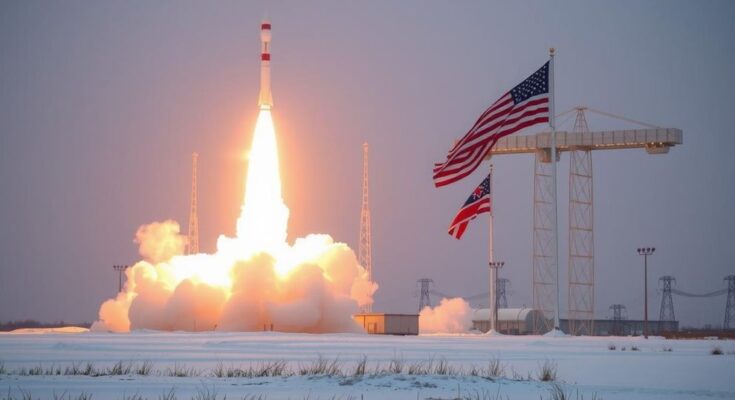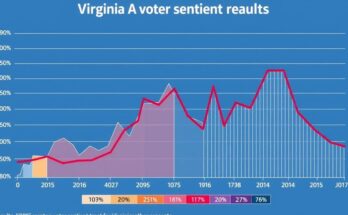North Korea has executed its first missile launch since the recent re-election of President-elect Trump. Despite opportunities for diplomatic engagement, Kim Jong Un’s regime shows no signs of moderating its stance, continuing to develop military capabilities amid regional tensions with South Korea, especially following internal political crises within the latter. The situation underscores ongoing animosities and complex geopolitical dynamics in the region.
North Korea has conducted its first ballistic missile test since President-elect Donald Trump regained office. This launch marks a continuation of Kim Jong Un’s defiance, as the last missile test occurred on November 5, just before the U.S. elections. Observers note that this event indicates a reluctance on Kim’s part to foster improved relations with the incoming administration, mirroring a stance that had been consistent during President Biden’s time in office.
The missile test followed an annual meeting held by North Korea’s ruling Workers’ Party, where leaders criticized the collaboration among the U.S., Japan, and South Korea, labeling it as a “nuclear military bloc.” The statement from the party articulated a clear directive for their future actions amidst growing tensions with Western nations, especially in the wake of North Korea’s involvement in Russia’s aggression toward Ukraine.
Additionally, the political climate within South Korea is tense, with President Yoon Suk-Yeol facing backlash for an attempted martial law declaration in December, which was ultimately blocked by legislators. North Korea seized this moment to denounce South Korea, referring to it as an “anti-communist outpost,” illustrating the regional animosities exacerbated by internal scandals and governance crises.
Following the thwarted martial law declaration, Kim’s regime criticized Yoon’s administration as having resorted to dictatorial measures amid his political struggles, drawing negative international attention to South Korea’s governance vulnerabilities. The situation unveils a complex interplay of regional power dynamics involving North and South Korea, as well as their relations with the United States and its allies.
The context surrounding North Korea’s missile launch stems from heightened geopolitical tensions in East Asia, particularly regarding the nuclear capabilities of the North Korean regime under Kim Jong Un. The country has frequently engaged in missile tests as a display of military strength, often in response to perceived threats. Furthermore, the recently elected South Korean leadership under President Yoon Suk-Yeol has faced scrutiny for its governance methods, culminating in significant public disapproval and political turmoil, which North Korea has exploited for propaganda purposes. This backdrop underscores the fraught relationship between the Koreas and their respective alliances, particularly amid global challenges such as the ongoing conflict involving Russia and Ukraine.
In conclusion, the recent ballistic missile test by North Korea highlights the nation’s ongoing defiance against perceived external threats and its determination to maintain military readiness. Simultaneously, internal political turmoil in South Korea exacerbates regional tensions, with both countries entrenched in a cycle of mutual hostility. The international community continues to observe these developments with concern, as they may have broader implications for stability in East Asia and beyond.
Original Source: www.foxnews.com




